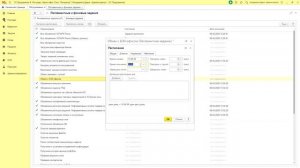
 3:15
3:15
2024-06-01 01:59

 3:10
3:10

 3:10
3:10
2025-06-01 23:52

 6:32
6:32

 6:32
6:32
2023-11-20 13:14

 1:40
1:40

 1:40
1:40
2023-12-25 04:08

 3:50
3:50

 3:50
3:50
2025-02-06 12:15

 1:48
1:48

 1:48
1:48
2023-11-15 00:22

 3:18
3:18

 3:18
3:18
2024-01-31 09:22

 0:39
0:39

 0:39
0:39
2024-02-22 00:44

 2:55
2:55

 2:55
2:55
2024-01-14 07:16

 3:44
3:44

 3:44
3:44
2024-07-29 16:09

 0:44
0:44

 0:44
0:44
2023-11-14 15:50

 22:22
22:22

 22:22
22:22
2023-10-04 18:00

 3:09
3:09

 3:09
3:09
2023-08-08 14:10
![Игрокопы: выпуск 10. Mark of the Ninja]() 14:45
14:45
 14:45
14:45
2014-06-30 09:58

 2:50
2:50

 2:50
2:50
2023-09-24 10:31

 20:53
20:53

 20:53
20:53
2023-04-21 11:00

 0:59
0:59

 0:59
0:59
2022-04-14 19:24

 4:18
4:18
![Игорь Кибирев - Пьяная ночь (Премьера клипа 2025)]() 3:08
3:08
![Жасурбек Мирзажонов - Суймаганга суйкалдим (Премьера клипа 2025)]() 5:45
5:45
![5sta Family - Антидот (Премьера клипа 2025)]() 3:33
3:33
![Зара - Танго о двух влюбленных кораблях (Премьера клипа 2025)]() 3:10
3:10
![Азиз Абдуллох - Аллохнинг айтгани булади (Премьера клипа 2025)]() 3:40
3:40
![TASSO - Таю (Премьера клипа 2025)]() 3:23
3:23
![MEDNA - Алё (Премьера клипа 2025)]() 2:28
2:28
![Джатдай - Забери печаль (Премьера клипа 2025)]() 2:29
2:29
![Аля Вайш - По кругу (Премьера клипа 2025)]() 2:37
2:37
![Любовь Попова - Прощай (Премьера клипа 2025)]() 3:44
3:44
![Рейсан Магомедкеримов - Забываю (Премьера клипа 2025)]() 3:20
3:20
![Виктория Качур - Одного тебя люблю (Премьера клипа 2025)]() 3:59
3:59
![Жалолиддин Ахмадалиев - Тонг отгунча (Премьера клипа 2025)]() 4:44
4:44
![Алмас Багратиони - Сила веры (Премьера клипа 2025)]() 3:18
3:18
![МАРАТ & АРНИ - Стала женой (Премьера клипа 2025)]() 3:51
3:51
![Ольга Бузова - Не надо (Премьера клипа 2025)]() 3:15
3:15
![Гор Мартиросян - 101 роза (Премьера клипа 2025)]() 4:26
4:26
![Олег Семенов - Бархатный сезон (Премьера клипа 2025)]() 3:51
3:51
![Зафар Эргашов - Мусофирда каридим (Премьера клипа 2025)]() 4:58
4:58
![Taylor Swift - The Fate of Ophelia (Official Video 2025)]() 3:58
3:58
![Обитель | The Home (2025)]() 1:34:43
1:34:43
![Хани, не надо! | Honey Don't! (2025)]() 1:29:32
1:29:32
![Стив | Steve (2025)]() 1:33:34
1:33:34
![Любимец женщин | Roger Dodger (2002)]() 1:41:29
1:41:29
![Счастливчик Гилмор 2 | Happy Gilmore (2025)]() 1:57:36
1:57:36
![Мужчина у меня в подвале | The Man in My Basement (2025)]() 1:54:48
1:54:48
![Пойман с поличным | Caught Stealing (2025)]() 1:46:45
1:46:45
![Я видел свет | I Saw the Light (2015)]() 2:03:50
2:03:50
![Девушка из каюты №10 | The Woman in Cabin 10 (2025)]() 1:35:11
1:35:11
![Голос любви | Aline (2020)]() 2:05:43
2:05:43
![Сумерки | Twilight (2008)]() 2:01:55
2:01:55
![Мальчишник в Таиланде | Changeland (2019)]() 1:25:47
1:25:47
![Чумовая пятница 2 | Freakier Friday (2025)]() 1:50:38
1:50:38
![Свинтусы | The Twits (2025)]() 1:42:50
1:42:50
![Порочный круг | Vicious (2025)]() 1:42:30
1:42:30
![Супруги Роуз | The Roses (2025)]() 1:45:29
1:45:29
![Одноклассницы | St. Trinian's (2007)]() 1:36:32
1:36:32
![Плохой Cанта 2 | Bad Santa 2 (2016) (Гоблин)]() 1:28:32
1:28:32
![Только ты | All of You (2025)]() 1:38:22
1:38:22
![Голый пистолет | The Naked Gun (2025)]() 1:26:24
1:26:24
![Отряд А. Игрушки-спасатели]() 13:06
13:06
![Минифорс. Сила динозавров]() 12:51
12:51
![Чуч-Мяуч]() 7:04
7:04
![Корги по имени Моко. Домашние животные]() 1:13
1:13
![Зебра в клеточку]() 6:30
6:30
![Сборники «Ну, погоди!»]() 1:10:01
1:10:01
![Новое ПРОСТОКВАШИНО]() 6:30
6:30
![Сборники «Оранжевая корова»]() 1:05:15
1:05:15
![Сборники «Умка»]() 1:20:52
1:20:52
![Пластилинки]() 25:31
25:31
![МегаМен: Полный заряд Сезон 1]() 10:42
10:42
![Тайны Медовой долины]() 7:01
7:01
![Команда Дино. Исследователи Сезон 2]() 13:26
13:26
![Корги по имени Моко. Защитники планеты]() 4:33
4:33
![Сборники «Зебра в клеточку»]() 45:30
45:30
![Истории Баданаму Сезон 1]() 10:02
10:02
![Лудлвилль]() 7:09
7:09
![Команда Дино. Исследователи Сезон 1]() 13:10
13:10
![Мультфильмы военных лет | Специальный проект к 80-летию Победы]() 7:20
7:20
![Зомби Дамб]() 5:14
5:14

 4:18
4:18Скачать видео
| 256x144 | ||
| 640x360 | ||
| 1280x720 |
 3:08
3:08
2025-10-16 11:32
 5:45
5:45
2025-10-27 13:06
 3:33
3:33
2025-10-22 13:57
 3:10
3:10
2025-10-27 10:52
 3:40
3:40
2025-10-18 10:34
 3:23
3:23
2025-10-16 10:00
 2:28
2:28
2025-10-21 09:22
 2:29
2:29
2025-10-24 11:25
 2:37
2:37
2025-10-23 11:33
 3:44
3:44
2025-10-21 09:25
 3:20
3:20
2025-10-16 11:19
 3:59
3:59
2025-10-24 12:00
 4:44
4:44
2025-10-19 10:46
 3:18
3:18
2025-10-24 12:09
 3:51
3:51
2025-10-16 11:41
 3:15
3:15
2025-10-18 10:02
 4:26
4:26
2025-10-25 12:55
 3:51
3:51
2025-10-16 10:57
 4:58
4:58
2025-10-18 10:31
 3:58
3:58
2025-10-17 11:48
0/0
 1:34:43
1:34:43
2025-09-09 12:49
 1:29:32
1:29:32
2025-09-15 11:39
 1:33:34
1:33:34
2025-10-08 12:27
 1:41:29
1:41:29
2025-08-15 19:31
 1:57:36
1:57:36
2025-08-21 17:43
 1:54:48
1:54:48
2025-10-01 15:17
 1:46:45
1:46:45
2025-10-02 20:45
 2:03:50
2:03:50
2025-08-15 19:31
 1:35:11
1:35:11
2025-10-13 12:06
 2:05:43
2:05:43
2025-08-27 18:01
 2:01:55
2:01:55
2025-08-28 15:32
 1:25:47
1:25:47
2025-08-27 17:17
 1:50:38
1:50:38
2025-10-16 16:08
 1:42:50
1:42:50
2025-10-21 16:19
 1:42:30
1:42:30
2025-10-14 20:27
 1:45:29
1:45:29
2025-10-23 18:26
 1:36:32
1:36:32
2025-08-28 15:32
 1:28:32
1:28:32
2025-10-07 09:27
 1:38:22
1:38:22
2025-10-01 12:16
 1:26:24
1:26:24
2025-09-03 13:20
0/0
 13:06
13:06
2024-11-28 16:30
 12:51
12:51
2024-11-27 16:39
 7:04
7:04
2022-03-29 15:20
 1:13
1:13
2024-11-29 14:40
 6:30
6:30
2022-03-31 13:09
 1:10:01
1:10:01
2025-07-25 20:16
 6:30
6:30
2018-04-03 10:35
 1:05:15
1:05:15
2025-09-30 13:45
 1:20:52
1:20:52
2025-09-19 17:54
 25:31
25:31
2022-04-01 14:30
2021-09-22 21:43
 7:01
7:01
2022-03-30 17:25
2021-09-22 22:54
 4:33
4:33
2024-12-17 16:56
 45:30
45:30
2025-09-17 18:49
2021-09-22 21:29
 7:09
7:09
2023-07-06 19:20
2021-09-22 22:45
 7:20
7:20
2025-05-03 12:34
 5:14
5:14
2024-11-28 13:12
0/0

